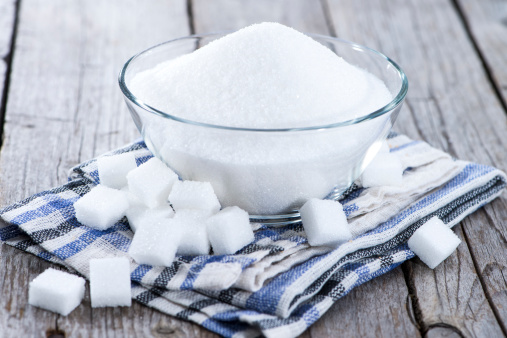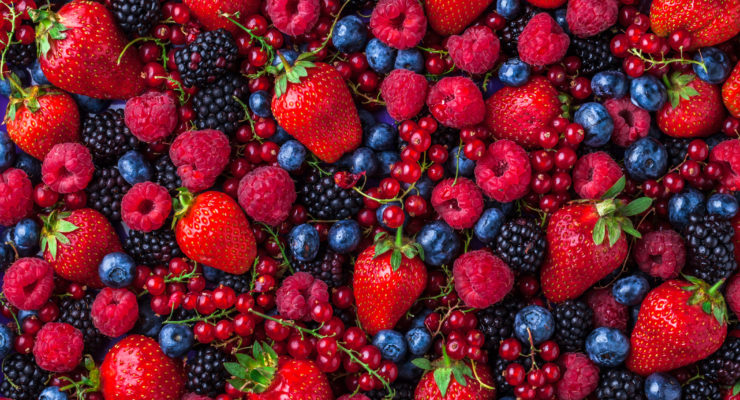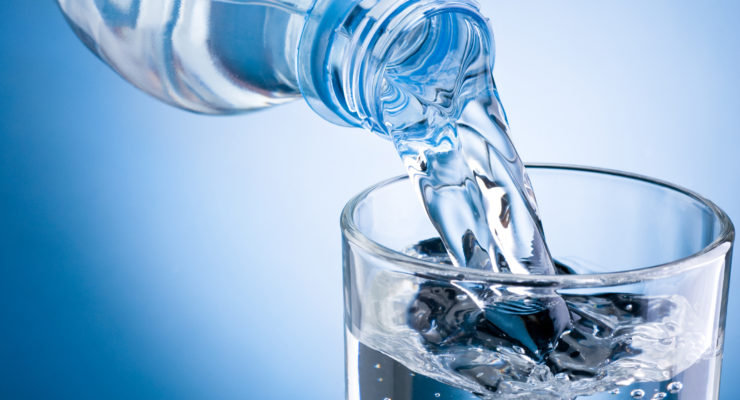So, what’s the secret?
- I am going to start with the point that will excite you the most. You can eat whatever the fuck you want. If you like carbs, eat carbs, if you like fats, eat fats. As of this writing, the most up to date scientific conclusion is that it. Doesn’t. Matter.
- Weight = calories in and calories out. Nothing more. If you got sucked into thinking that “it’s the amount of fat you eat” or “the number of carbs you eat” or anything like that. I don’t blame you one bit. It’s what has constantly been shoved down our throats every single day of our lives.
- It has to be personal. The majority (over 70%) of the calories you burn every day are actually burned just to keep you alive. Therefore the amount of calories you eat and the way your body utilizes those calories is incredibly different from person to person. The way you eat has to be personalized to suit your metabolism and biological identity.
- You are either in a calorie surplus or a calorie deficit. Realizing this and controlling it to suit your specific goals in health and in life is how you will actually get there and achieve those goals.
- If you want to lose weight you need to take in fewer calories than you burn each day. BUT DO NOT TAKE THIS TO AN EXTREME. Please. The reason 95% of people fail trying to diet, is they think that it’s possible to drop insane amounts of weight, overnight. Sure, you can do this.. but I promise your body is going to FUCK YOU UP as soon as you start eating like a normal person again. So how do you lose weight and keep it off? First, you want to eat for 2–4 at a level where your weight doesn’t change. Then you want to slowly start decreasing the number of calories you eat every day while increasing the amount of physical exercise you do. “But omg, won’t this take months??”. Yes, it fucking will. And if fucking needs to. Shit.
- If you want to gain weight (muscle) you simply need to do the opposite, you need to create a calorie surplus. As far as I am aware there isn’t any guaranteed way to put on muscle just muscle and no fat. You are going to need to experiment with what works for you and in all likelihood, you are going to put on some fat as well. The majority of the equation has to do with the type of foods you eat in a calorie surplus (generally speaking avoid low-quality fats and refined sugars) and of course, your training. If you are in a calorie surplus and want to add lean muscle, you need to signal to your body that you are optimizing for muscle and strength by exercising.
- If you just want to stay the same. I am glad that you are happy with who you are. That is perfect, and I hope that everyone reading this guide will eventually fall into this category. The advice here is simple. Keep enjoying what you eat and your relationship with food. If you are currently maintaining the same weight month after month, your doing the right thing right now. Just be aware that with time, our bodies do change, so if you find yourself putting onweight you don’t want, or losing weight you don’t want to lose you might need to make small adjustments to your calorie in/ calorie out equation.
- The quality of the food you eat is important. While it doesn’t matter what macro’s your diet focuses on, the quality of those macro’s does. So just try to eat as much fresh, wholesome food as possible. Try to minimize processed food as much as possible because those chemicals just ain't cool. And try to maximize the amount of fresh and wholesome food that you eat.
- You need to find a way of eating that works for you. Not for 1 week or 1 month or even 1 year. But for the rest of your life. Find a way of eating that is in the calorie range that you need to achieve your goals, a way of eating that you love and a way of eating that you can stick to for the rest of your life.
When I first started my journey on optimizing my health, wellness and day to day life what I didn’t realize was how many times I would think, that I had “cracked the secret code” and end up being completely wrong.
Veganism and Vegetarianism
I had been sucked into the Netflix rabbit hole of food documentaries and they were definitely convincing. I appreciate the fact the Netflix is fighting for sustainable eating, there is more to our eating patterns than our health. The way we eat directly affects the world and the creatures that we share this place with. And not in a good way. But you didn’t come here to read about mass farming and agriculture, so I am not going to dive into any of that today. But I think it’s important that we, as humans, take the time to think about our actions and their effects on the world outside of our immediate selves, as frequently and in as much depth as possible.
So, let’s address the first rabbit hole I went down on my quest for optimizing health, longevity, lifestyle, and diet. Vegetarianism or, if I could handle it, Veganism.
As we all know a vegetarian is someone who does not consume meat, but they do eat animal products like eggs and milk. And a Vegan is someone who does not eat (and sometimes does not consume at all) any products derived from animals.
What sold me the most on this way of eating was two-fold:
- It’s potential to reduce chronic diseases such as heart disease and diabetes.
- The general “cleanliness” of the diet. It just made sense to me at the time.
The next step was to try it out, and, I found this extremely difficult. As someone who is trying to gain lean muscle mass or at least, maintain my current bodyweight, eating enough calories was an insanely difficult task. Combining that with the complete removal of a lot of what makes food and life good, was simply too much and I could not maintain the lifestyle long term.
However, I have incorporated some of what I learned into the way I currently eat. I usually eat 1–2 vegetarian or vegan dinners, 1–2 vegetarian or vegan lunches and all of my breakfasts are vegetarian.
Paleo
I wanted to start by just saying fuck Paleo and sorry to like 10% of the people reading this that are now googling my name to try and find my address so they can come and kill me.
The premise that your diet is built on makes myself along with a large part of the scientific community want to pull our hair out and scream. Not only have we been living on potatoes, grains, and legumes for the past 10,000 years but you just cut out some of the highest quality food sources that we have available to us today for no fucking reason. God dammit.
My 100% main problem with this shit is that you remove high quality foods, not based on any sort of scientific approach, but simply so it makes the diet “sounds better”.
Now… My giant rant about Paleo is complete, and here’s the twist — I actually think the majority of food choices and their general philosophy on clean eating, is a really great foundation for health. I bet you weren’t expecting that, yeah, I think the paleo diet is healthy.
But just fucking leave out the bullshit, I know you sell more diet plans if you call it a “caveman diet”, but it comes at a direct cost to the overall health benefits you could be getting out of your eating.
Keto
One of the biggest dieting fads right now is Keto and in all of my research, it seems like it deserves its current fame. Even though you only heard about it recently, the origin of the keto diet can be traced back to 1921 when Russell Wilde coined the term ketogenic diet to describe a diet that produced a high level of ketone bodies in the blood.
There are thousands and perhaps millions of people more qualified than me to talk about the Keto diet so I am going to keep this short.
The Keto diet, from my research, is best used by people wishing to maintain a calorie deficit and lose weight, not put on lean muscle in a calorie surplus. While I am not suggesting that it is not possible, there are a massive amount of highly successful lifters and athletic performers that do eat Keto, I am just saying, it’s usually more effective for a calorie deficit, and weight loss.
The premise is to eat a high fat, really high-fat diet to achieve a number of it’s proven, and not so proven, benefits: Ketones can be viewed as a superior source of energy, potentially accelerated weight loss, lower appetite, reduced insulin levels, increase HDL(the “good”) cholesterol.
The downsides? As with any eating, if you eat this way into a calorie surplus there are a host of negative side effects that come with it. This diet does generally make it harder to overeat due to the appetite suppression qualities however it certainly is possible. The other main downside is that we simply don’t know enough about the long-term effects of eating this way and we just don’t know what those could be.
What do you do now?
- Define your goals. Do you want to lose weight or gain weight?
- Take note of the current direction of your weight, is it going up, down, or staying the same?
- Count the calories that you are eating over a 7 day period.
- Very slowly, increase or decrease the number of calories you are eating per day in the direction of your goals
- Make a conscious decision to try and eat less processed food and more wholesome food that you enjoy. It might take time, but your taste and body will change, that’s just how it works.
Conclusion
I know that this was brief and there was alot more I could cover in alot more detail, but I guess that was also the point. I hope this starts a discussion, I know that our food culture has in some was replaced religion for alot of people. Which means when I say things like, it doesn’t matter what diet you are on, it is going to upset alot of people.
All I hope is that this opens the floor to more open debates and discussions. We should be attacking this with an open mind, and if you are someone that defiantly defends an exact diet, I get it. I am sure that it has worked for you and that is fantastic. I am extremely happy that you found something that helped you hit your food and health goals.
Thanks for your time.


